WMG News
WMG’s partnership with West Midlands Police honoured at prestigious industry awards
WMG’s forensic research partnership with West Midlands Police was honoured at the TCT Awards, this week, scooping top spot in the Inspex Application Award category.
The Awards recognise the innovators, technologies and collaborators behind the leading examples of Additive Manufacturing, 3D Printing, Design and Engineering across the globe.
Professor Mark Williams, Leader of the Centre for imaging, Metrology, and Additive Technology (CiMAT) at WMG explained: “We have helped to provide expert witness 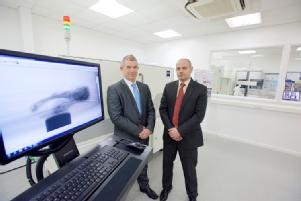 testimony in over 100 homicide cases by 13 different police forces across the UK. Cases include strangulation, stabbing, blunt force trauma and bone fractures.
testimony in over 100 homicide cases by 13 different police forces across the UK. Cases include strangulation, stabbing, blunt force trauma and bone fractures.
“In April we opened a new WMG Forensic Centre for Digital Scanning and 3D printing – a research hub supporting Homicide Investigation funded by West Midlands Police to scan injuries and produce 3D print outs for use in expert testimonies.
“The scans are 1000 times more detailed than hospital scans, and can detect microscopic injuries which could otherwise be missed by conventional medical CT scanners. 3D renderings are then produced of the injuries, and their age can be identified too. The renderings are used in court to during trials to provide visual context and support the pathologist’s testimony.”
WMG’s heritage forensics was also recognised at the Awards, with Professor Williams and his team being Highly Commended for their work with Oxford University Museum of Natural History.
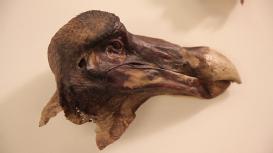 In this project the use of 3D scanning has rewritten natural history for a number of rare objects within Oxford University Museum of Natural History’s collection including unearthing surprising evidence that the Oxford Dodo was shot in the neck and back of the head with a shotgun. The findings cast doubt on the popular theory that the Oxford Dodo is the remains of a bird kept alive in a townhouse in 17th-century London.
In this project the use of 3D scanning has rewritten natural history for a number of rare objects within Oxford University Museum of Natural History’s collection including unearthing surprising evidence that the Oxford Dodo was shot in the neck and back of the head with a shotgun. The findings cast doubt on the popular theory that the Oxford Dodo is the remains of a bird kept alive in a townhouse in 17th-century London.
Find out more about CiMAT here.
UKRI fellowships awarded to seven University of Warwick academics
Several academics at the University of Warwick have been awarded a UKRI Future Leader Fellowship, providing world-class research in topics including autonomous vehicles to life in outer space.
The UK Research and Innovation Future Leaders Fellowships (FLF) scheme is designed to increase the supply of talented individuals needed to ensure that UK research and innovation continues to be world class.
Seven academics from the University of Warwick have been awarded a future leader fellowship, which will help develop their careers as some of the best researchers and innovators from around the world in the UK.
The academics involved vary from Sciences and Social Science faculties. They are:
· Dr Matthew Spencer – Centre for Interdisciplinary Methodologies
· Dr Tom Gur – Computer Science
· Dr Benjamin Richards – Physics
· Dr Richard Moore – Philosophy
· Dr Angela Aristidou – Warwick Business School
· Mr Siddartha Khastgir – WMG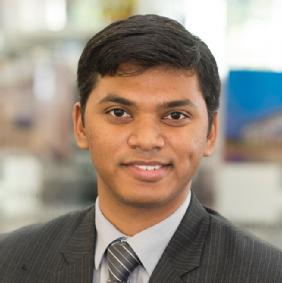
· Dr Heather Cegla – Physics
Responding to the success of University of Warwick academics securing Future Leadership Fellowships from UKRI, Professor Pam Thomas, the University of Warwick’s Pro-Vice Chancellor for Research said:
“I am delighted to see University of Warwick researchers being recognised by UKRI, and for them to receive support for their ground-breaking research. Drawn from across our University, the seven fellowships are welcome recognition of the depth, breadth and ingenuity of Warwick research. I wish our academics the very best as they continue their work and greatly look forward to following their progress.”
Universities Minister Chris Skidmore comments:
“Delivering on our research and innovation ambitions means putting people first, whether they are just starting out in their career or are leading major projects in academia or industry.
“These inspirational Future Leaders Fellows will generate the ideas of the future, helping to shape science and research for the 21st century. But to realise the full potential of these discoveries, their ideas need to be taken out of the lab and turned into real products and services, where they can actually change people’s lives for the better.
“That’s why we are creating 20 new University Enterprise Zones, helping local start-ups to co-locate in universities to build the businesses of the future – all inspired by university research.”
Professor Sir Mark Walport, UK Research and Innovation’s Chief Executive, said: “The Future Leaders Fellowships will enable the most promising researchers and innovators to become leaders in their fields, working on subjects as diverse as climate change, dementia and quantum computing.
“UKRI is committed to creating modern research and innovation careers and our Future Leaders Fellowships aim to support and retain the most talented people, including those with flexible career paths."
Dr Matthew Spencer, of the University of Warwick’s Centre for Interdisciplinary Methodologies will be researching Cybersecurity, will focus on producing new insights about cyber security practice through ethnographic analysis in Critical National Infrastructure organisations, closing the loop between cyber security policy and practice and develop new participative methods to improve cyber security practice.
Commenting on his research Dr Tom Gur, of the University of Warwick’s Department of Computer Science, said that it will be “focused on pushing the boundaries of classical and quantum verifiable computing and its real-world applications to delegation of computation to the cloud, as well as to blockchain technology. Its primary objective is to develop a wide arsenal of tools that would open new possibilities for meeting the challenges imposed by big data and the need for decentralised peer-to-peer systems.”
Dr Benjamin Richards, of the University of Warwick’s Department of Physics, says that he intends to “make a vital measurement of the rate and energy of neutrinos that arrive from distant supernovae throughout the galaxy. The properties of these neutrinos will tell us much about the wider composition of the universe as well as neutrinos themselves. This measurement will allow us to test the rate of black hole formation in the universe, test our models of supernova and tell us about the origin of heavy elements and metallicity of the galaxies.”
Dr Richard Moore, of the University of Warwick’s Department of Philosophy, will use the tools of philosophy, linguistics, and psychology to develop a new account of the developmental relationship between 'mindreading' and communication. Commenting, Dr Moore said: “Mindreading, involving the use of a 'theory of mind' (ToM) is the ability to attribute mental states to others to predict and explain their behaviour. Humans are better at this than other species, but the origins of uniquely human forms of ToM are disputed.”
Dr Angela Aristidou, of Warwick Business School, proposes to study the challenges of partnering across sectors, focusing on partnerships between the public sector and third sector, including charities, voluntary and community organizations. Commenting, Dr Aritidou seeks to examine these innovative partnerships, “I propose a project that leverages a multi-case, longitudinal design and draws on management, economics and public policy research”.
The research by Mr Siddartha Khastgir of WMG at the University of Warwick will focus on the global Connected & Autonomous Vehicles (CAV) industry, worth over £50billion (by 2035), with the UK CAV industry being projected over £3billion. Commenting, Mr Khastgir said that “the UK Government's Industrial Strategy aims to bring fully autonomous cars on the UK roads by 2021, one of the first countries in the world to achieve this. However, in order to realise this vision and the market potential, safe introduction of CAV is necessary, requiring significant research to overcome diverse barriers (technological, legislative and societal) associated with public deployment of CAV.”
Dr Heather Cegla of the University of Warwick’s department of Physics will use her research to help try and answer one of the biggest questions of all; Are we alone in the Universe? To understand the origins of life in the cosmos, we must also create a complete picture of planetary formation, evolution, and habitability. Commenting Dr Cegla said she aims to “understand and disentangle a fundamental barrier on the pathway to confirming other Earths: the stellar surface inhomogeneities from convection. Planet confirmation requires a mass measurement, which can be determined from the Doppler shift of the absorption lines in the stellar atmosphere.”
ENDS
20 SEPTEMBER 2019
NOTES TO EDITORS
For further information please contact:
Alice Scott
Media Relations Manager – Science
University of Warwick
Tel: +44 (0) 2476 574 255 or +44 (0) 7920 531 221
E-mail: alice.j.scott@warwick.ac.uk
WMG Professor takes on new role as Chair of the Faculty of Science, Engineering and Medicine
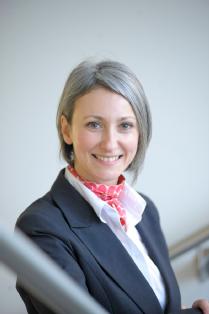 WMG Professor of Applied Psychology, Caroline Meyer, has been appointed as the new Chair of the Faculty of Science, Engineering and Medicine for the University of Warwick
WMG Professor of Applied Psychology, Caroline Meyer, has been appointed as the new Chair of the Faculty of Science, Engineering and Medicine for the University of Warwick
Professor Meyer will take up her new role when the current Chair of Faculty, Professor Mike Shipman, steps down over the summer.
Professor Meyer joined WMG at the University of Warwick from Loughborough University. With over 20 years experience in mental health and wellbeing, Professor Meyer sits on the Coventry Health and Wellbeing Board and West Midlands Combined Authority Board. She has also worked extensively with industry, from SMEs to multi-nationals, and third sector organisations, including internationally.
At WMG, Professor Meyer launched a new team focusing on Applied Psychology. This involves the application of psychological theory and techniques (including decision-making and cognitive and behavioural change) to improve mental health, workforce productivity and product innovation. The group also delivers fusion science research-led education programmes.
Professor Meyer will manage this new role alongside her current research responsibilities within WMG.
The role of the Faculty Chair
In addition to chairing the Board of the Faculty, Chairs of Faculties serve on a range of committees at the University, and are responsible for promoting the policies, programmes and procedures within their respective Faculty. Faculty Chairs are also a source of support and act as ‘first port of call’ for Heads of Department and Research Centres in the relevant Faculty and inform and influence the Faculty on key decisions affecting it and the University.
Faculty Chairs are also engaged in the appointment processes for key academic posts within the Faculty. Chairs serve ex officio on the following formal bodies: Senate, Steering Committee, Research Committee, Honorary Degrees Committee, Academic Quality and Standards Committee, Capital, Space and Amenities Group, the Academic Resourcing Committee, and might also act as Chair of the Investigating Committee and Appeals Committee.
WMG Professor takes on new role as Deputy Pro-Vice-Chancellor (North America)
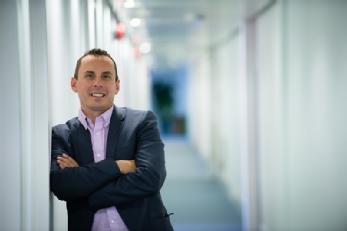 WMG Professor of Cyber Security Engineering and Director of Research in Cyber Security Carsten Maple has been appointed as Deputy Pro-Vice-Chancellor (North America) for the University of Warwick.
WMG Professor of Cyber Security Engineering and Director of Research in Cyber Security Carsten Maple has been appointed as Deputy Pro-Vice-Chancellor (North America) for the University of Warwick.
In his new role, Carsten will work closely with Professor Mike Shipman, Pro-Vice-Chancellor (International), to extend and deepen the relationships with the University’s partners in North America, and to pursue opportunities for funding, student mobility, and research and teaching collaboration.
Professor Maple explained: “I am passionate about the international agenda having been a visiting professor at four institutions overseas, and participated in three government-sponsored missions to the United States. I am delighted to be undertaking this important role.”
Commenting on the new role, Professor Chris Ennew, University of Warwick Provost, said:
“Carsten’s profile, skills and experience make him the ideal person to undertake this crucial role to develop University-level strategic partnerships in North America. The appointment of Carsten to the role of Deputy Pro-Vice-Chancellor for North America is a key step towards delivery of the University’s Internationalisation Strategy.”
Professor Simon Swain, Pro-Vice-Chancellor (External Engagement) said: “Carsten’s appointment is an enormous boost to the International team and we are all looking forward to working with him on our hugely ambitious goals in North America.”
Professor Maple is a co-lead of the Cyber Security GRP and the Principal Investigator of the NCSC-EPSRC Academic Centre of Excellence in Cyber Security Research at the University and the Transport & Mobility lead of the PETRAS National Centre of Excellence for IoT Systems Cybersecurity. He has published over 200 peer-reviewed papers has provided evidence and advice to governments and organisations across the world, including being a high-level scientific advisor for cyber security to the European Commission. He is a member of various national and international boards and expert groups, is Immediate Past Chair of the Council of Professors and Heads of Computing in the UK and a fellow of the Alan Turing Institute.
Professor Maple will manage this new role alongside his current research responsibilities within WMG.
WMG Professor named as one of this year’s Women to Watch
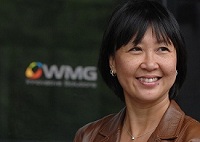 WMG's Professor of Marketing and Service Systems, Irene Ng, has been featured in the annual Women to Watch supplement, compiled by Cranfield University.
WMG's Professor of Marketing and Service Systems, Irene Ng, has been featured in the annual Women to Watch supplement, compiled by Cranfield University.
The 2019 edition features 50 Black, Asian and other Minority Ethnic (BAME) women, showcasing inspiring professionals who come from backgrounds historically under-represented in the senior leadership pipeline.
Professor Ng said: “ I am honoured to be featured in the Women to Watch supplement. It is so important that we continue to look around our own contexts and lives to be mindful of representations, whether it’s BAME or other minority views.”
Businesses should tap into diverse talent pool
Cranfield University’s Female FTSE Board Report, launched today [11 July], reveals that only 11% of women on FTSE 100 boards are from BAME backgrounds.
Dr Doyin Atewologun, Director of the Gender, Leadership and Inclusion Centre, says: “We need to be sure that we are not only advancing progress for a certain small group of women, but are truly pushing board diversity in every sense. We hope executive search firms, FTSE Board Chairs and other Directors are inspired by the rich talent we highlight, to look at gender diversity - including men - in a different way.”
Women of colour are missing from the boardroom
The Women to Watch supplement was introduced by Cranfield University’s Gender, Leadership and Inclusion Centre in 2009, and is this year compiled in collaboration with The Network of Networks BAME – Multicultural Chapter (TNON) and the Black British Business Awards.
Melanie Eusebe and Sophie Chandauka, Co-Founders of the Black British Business Awards said: “In 2019, it is simply unacceptable for any FTSE 350 nomination committee to refer to the common refrain that there are no Black Asian and other Minority Ethnic (BAME) women on boards because the talent does not exist. Women of colour are often missing from the boardroom inclusion discourse, from the search firm shortlists and, ultimately, from the PLC board. The BBBAwards joins Cranfield University in this bold step to disrupt the status quo by declaring, through the profiles of these 50 impressive women, that BAME women of commercial excellence and tenure exist in substantial numbers.”
Diane Greenidge, Founder of TNON, said: “These inspiring women, already leaders in their respective fields, have the potential to bring the power of greater diversity to UK boardrooms. We join Cranfield University in urging businesses to realise the positive impact that women from a broader range of backgrounds can have on their success.”
WMG hat-trick at University Awards!
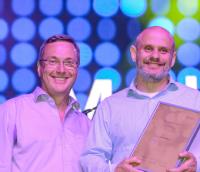
Congratulations to the brilliant Lucy Inman and Professor Mark Williams who both won a prestigious University Award last night.
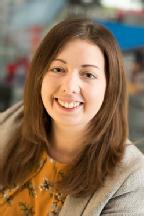 Lucy, who is Teaching and Learning Officer in the WMG Full-time Master's office won the top prize in the Service Excellence category.
Lucy, who is Teaching and Learning Officer in the WMG Full-time Master's office won the top prize in the Service Excellence category.
The judges said: “Lucy leads by example, bringing a calm and thoughtful approach to problems, working to resolve things to ensure the best possible outcome for students, and also putting measures in place to ensure it doesn’t repeat, or to mitigate the impact where matters
are likely to repeat."
Professor Mark Williams, who heads up the Metrology area at WMG, received the Research Contribution Award. “Through a passion for 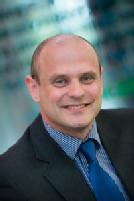 knowledge and a nose for a great mystery, Mark is inspiring hundreds of people and answering age-old questions. He is a credit to Warwick and a
knowledge and a nose for a great mystery, Mark is inspiring hundreds of people and answering age-old questions. He is a credit to Warwick and a
perfect example of what can be achieved when people leave the confines of their main
area of research."
WMG’s involvement in the University’s Family Day was also recognised at the Awards, with the team scooping highly commended in the Community Contribution Award category.
The Warwick University Awards recognise outstanding individuals and teams from across the University. After the award ceremony staff enjoyed a special summer party with a festival theme including live music from Scouting for Girls.
WMG researcher takes research to Parliament
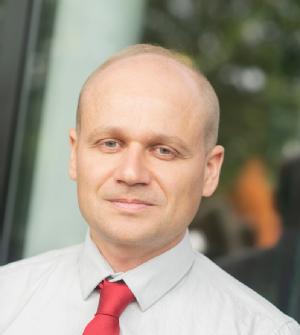 WMG Research Fellow, Sid-Ali Amamra, has been selected to present his work at the prestigious STEM for BRITAIN event on Wednesday 13th March.
WMG Research Fellow, Sid-Ali Amamra, has been selected to present his work at the prestigious STEM for BRITAIN event on Wednesday 13th March.
The event takes place at Westminster with around 100 MPs in attendance to hear more about the current science, engineering and mathematics research by early-stage and early-career researchers in the UK.
Sid-Ali works within WMG’s Intelligent Vehicles research team focusing on the advanced energy management systems for electrical networks and power systems integrating plug-in electric vehicle with Li-ion battery technologies.
Sid-Ali’s poster on research about the Vehicle-To-Grid (V2G) technology supervision using internet of things (IoT) will be judged against dozens of other scientists’ research in the only national competition of its kind. He was shortlisted from hundreds of applicants to appear in Parliament.
Sid-Ali explains: “I feel happy to present WMG at this event. It is a fantastic opportunity for me to communicate my research to an interesting audience and to present the high impact of my project for helping government to reach the net-zero emissions UK’s target in near future.
“It gives me a chance to go to Parliament and be in the company of MPs, policymakers and key figures, as well as others researchers from around the country. At STEM for BRITAIN, I want to explain the promising results of using V2G technology to help achieve the UK’s zero emission target.”
Stephen Metcalfe MP, Chairman of the Parliamentary and Scientific Committee, said:
“This annual competition is an important date in the parliamentary calendar because it gives MPs an opportunity to speak to a wide range of the country’s best young researchers.
“These early career engineers, mathematicians and scientists are the architects of our future and STEM for BRITAIN is politicians’ best opportunity to meet them and understand their work.”
Sid-Ali’s research has been entered into the engineering session of the competition, which will end in a gold, silver and bronze prize-giving ceremony.
Judged by leading academics, the gold medalist receives £2,000, while silver and bronze receive £1,250 and £750 respectively.
The Parliamentary and Scientific Committee runs the event in collaboration with the Royal Academy of Engineering, the Royal Society of Chemistry, the Institute of Physics, the Royal Society of Biology, The Physiological Society and the Council for the Mathematical Sciences, with financial support from the Clay Mathematics Institute, United Kingdom Research and Innovation, WMG, Society of Chemical Industry, the Nutrition Society, Institute of Biomedical Science, the Heilbronn Institute for Mathematical Research and the Comino Foundation.
WMG is proud to be sponsoring the Engineering section for the third year.
Find out more about STEM for Britain here.
It’s a hat trick!
Three WMG Professors have now joined the The Alan Turing Institute as Fellows.
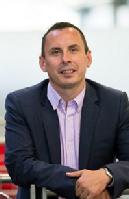 Our Professor of Cyber Systems Engineering Carsten Maple, Professor of Data Science, Giovanni Montana, and Professor of Marketing and
Our Professor of Cyber Systems Engineering Carsten Maple, Professor of Data Science, Giovanni Montana, and Professor of Marketing and 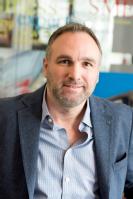 Service Systems Irene Ng; are now all part of the prestigious line-up of expert Fellows.
Service Systems Irene Ng; are now all part of the prestigious line-up of expert Fellows.
The Alan Turing Institute is a national body championing data science and artificial intelligence research. It was created by five founding universities - Cambridge, Edinburgh, Oxford, UCL and the University of Warwick plus the EPSRC, with a further eight new universities – Leeds, Manchester, Newcastle, Queen Mary University of London, Birmingham, Exeter, Bristol, and Southampton – joining in 2018.
WMG PhD student receives international acclaim
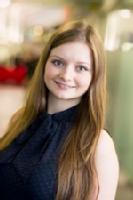 Kateryna Hechu, the lead author of a research paper entitled ‘Real-Time Measurement of Contraction Behaviour of Peritectic Steels During Solidification,’ has, along with her co-authors been awarded the prestigious 2017 Jerry Silver Award by The Association of Iron and Steel Technology (AIST).
Kateryna Hechu, the lead author of a research paper entitled ‘Real-Time Measurement of Contraction Behaviour of Peritectic Steels During Solidification,’ has, along with her co-authors been awarded the prestigious 2017 Jerry Silver Award by The Association of Iron and Steel Technology (AIST).
AIST represents an international network of steel industry knowledge and expertise. It is a non-profit organisation with 17,500 members from more than 70 countries.
The Jerry Silver award is presented to the author of a process metallurgy or product applications technical paper judged to be the ‘best of class’ by the AIST Metallurgy – Processing, Products and Applications Technology Committee. One of the authors must be a student.
Florence Hopper - Young Women's Trust 'Exceptional Apprentice' award winner 2017
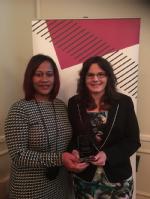 A profile of Florence Hopper, the Young Women’s Trust ‘Exceptional Apprentice’ 2017 award winner (sponsored by WMG).
A profile of Florence Hopper, the Young Women’s Trust ‘Exceptional Apprentice’ 2017 award winner (sponsored by WMG).
1. What advice would you offer to other young women starting out in their careers?
Network. Talk to, and get to know, as many people in the organisation as you can. It always helps to have friendly faces around the office, that way when you have a query you know people who can point you in the right direction. Take every opportunity that arises to grow your network, get involved in projects, or help with the company’s charity team.
Be proactive. Don’t wait for someone to tell you what to do. Instead ask them to show you how to do something, or ask if there’s anything you can help with. Often people are busy and perhaps don’t realise you have the time or capacity to help. By getting involved you learn more about the business and increase your knowledge, as well as demonstrating that you are willing to help.
Be persistent. Success can rarely be achieved without a great deal of hard work, and if it feels like you’re struggling it doesn’t mean that you are failing. Every set back is an opportunity to learn. It’s important to stay positive and keep working hard, even if it’s tough. The hard work will pay off.
And finally, be the best version of yourself that you can. Make the most of every opportunity that comes your way – you never know where it could take you.
